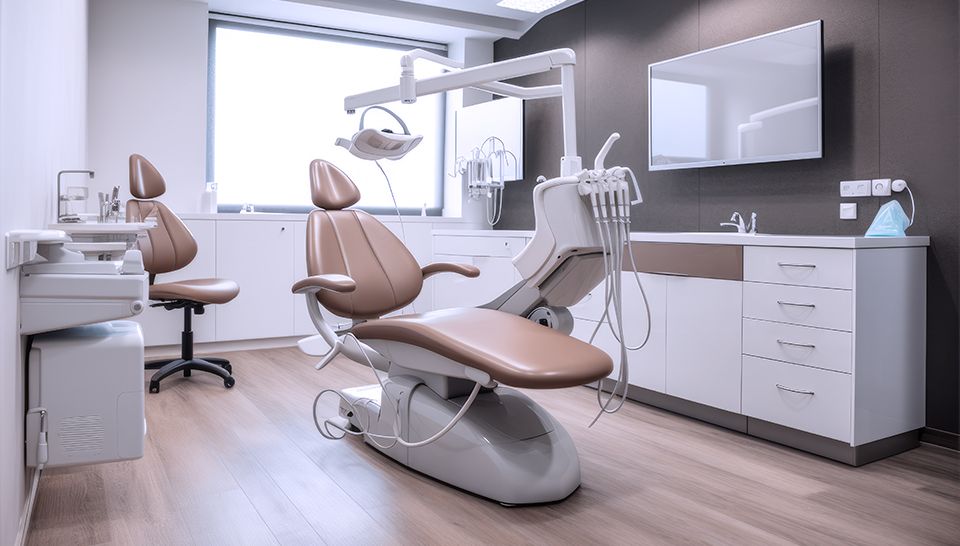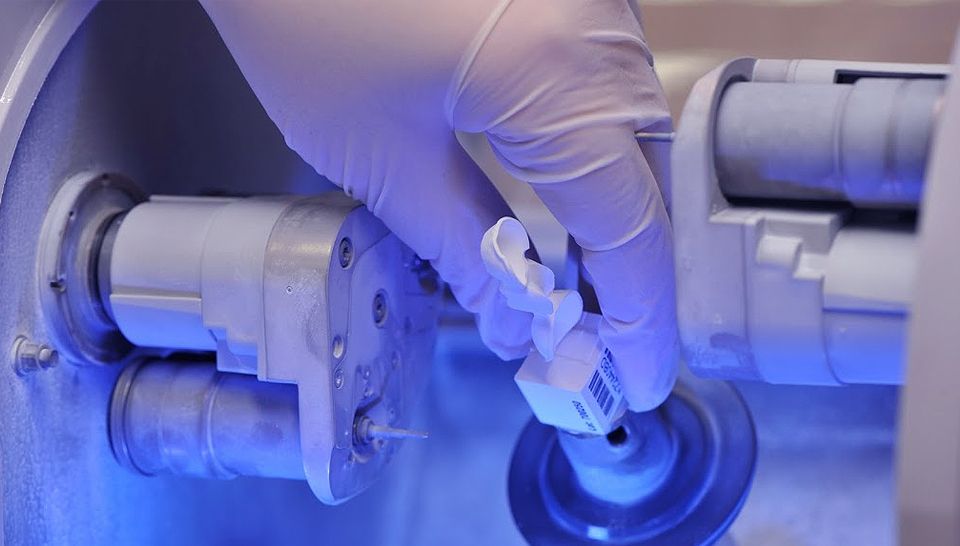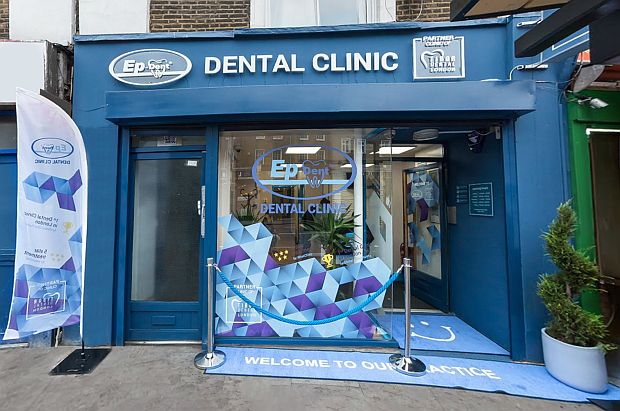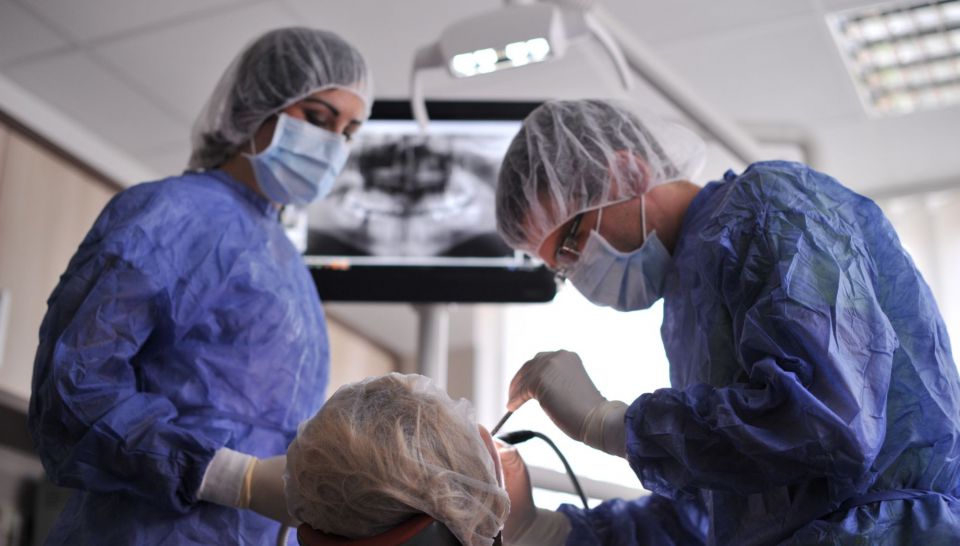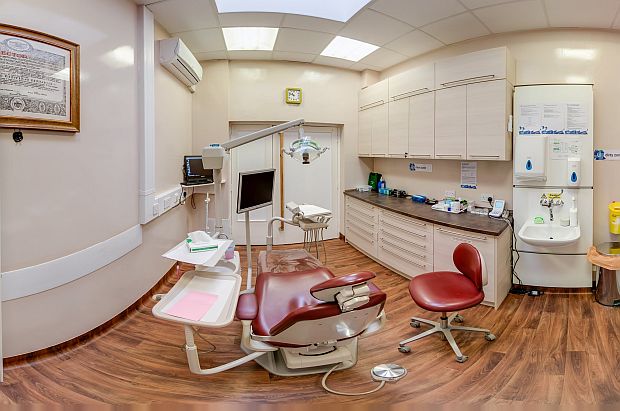No sinus lifts
and bone grafts
Unnecessary
with this sytem
The sinus is located above the pre-molar and molar teeth. The bone in the area below the sinus is relatively thin in normal circumstances so people suffering from bone recession in this area are unable to receive implants without a sinus lift and bone graft, which involves raising the sinus membrane and grafting bone onto existing bone, as illustrated.
Immediate loaded implants, as can be seen in the illustration , can be fitted at an angle of up to 30 degrees, thereby avoiding the sinus area and the need for a sinus lift and bone graft.
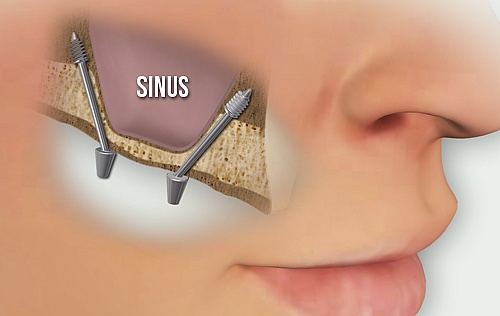 Avoiding the sinus area with Swiss implants
Avoiding the sinus area with Swiss implants

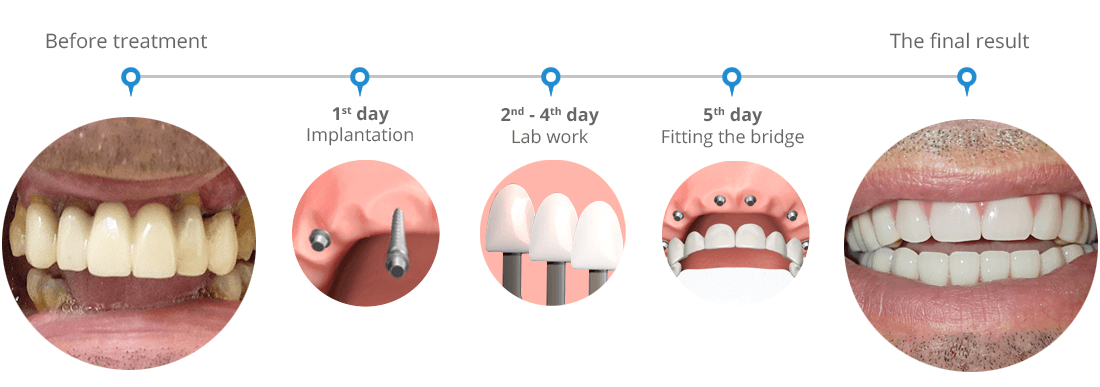
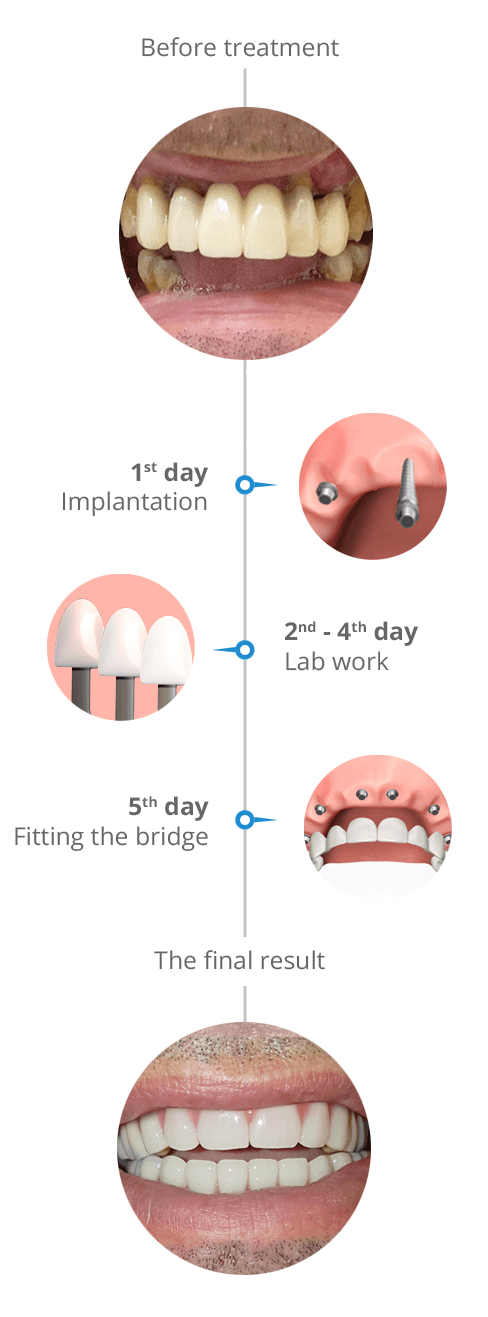
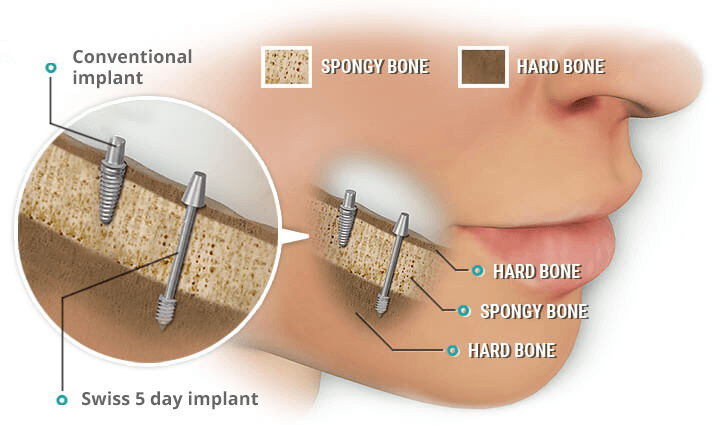 In most cases there is still enough hard bone left in the deeper layers beyond the spongy bone to support a special type of implant (bi-cortical)
as they are fixed in that hard bone which gives strong stability immediately after the implantation.
In most cases there is still enough hard bone left in the deeper layers beyond the spongy bone to support a special type of implant (bi-cortical)
as they are fixed in that hard bone which gives strong stability immediately after the implantation.

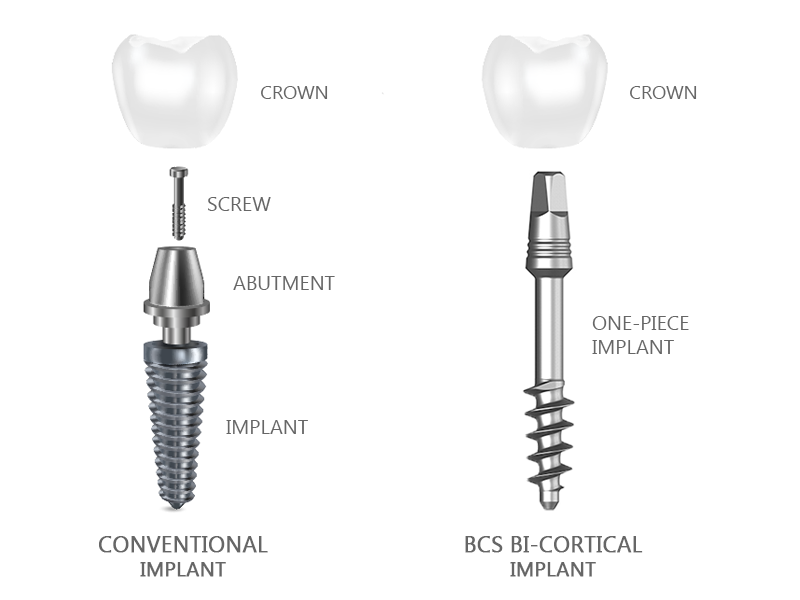
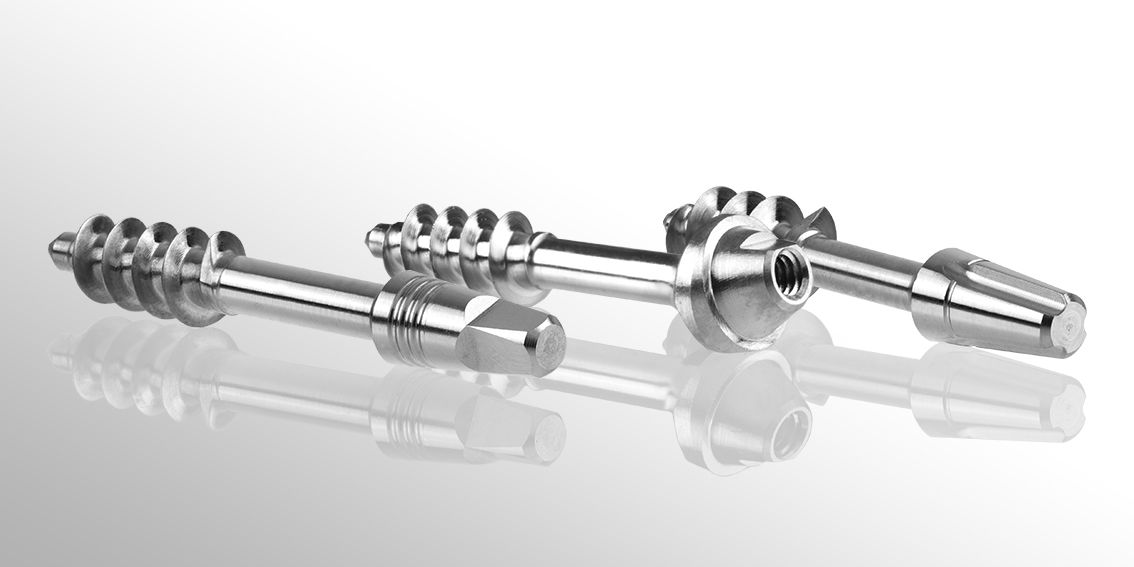
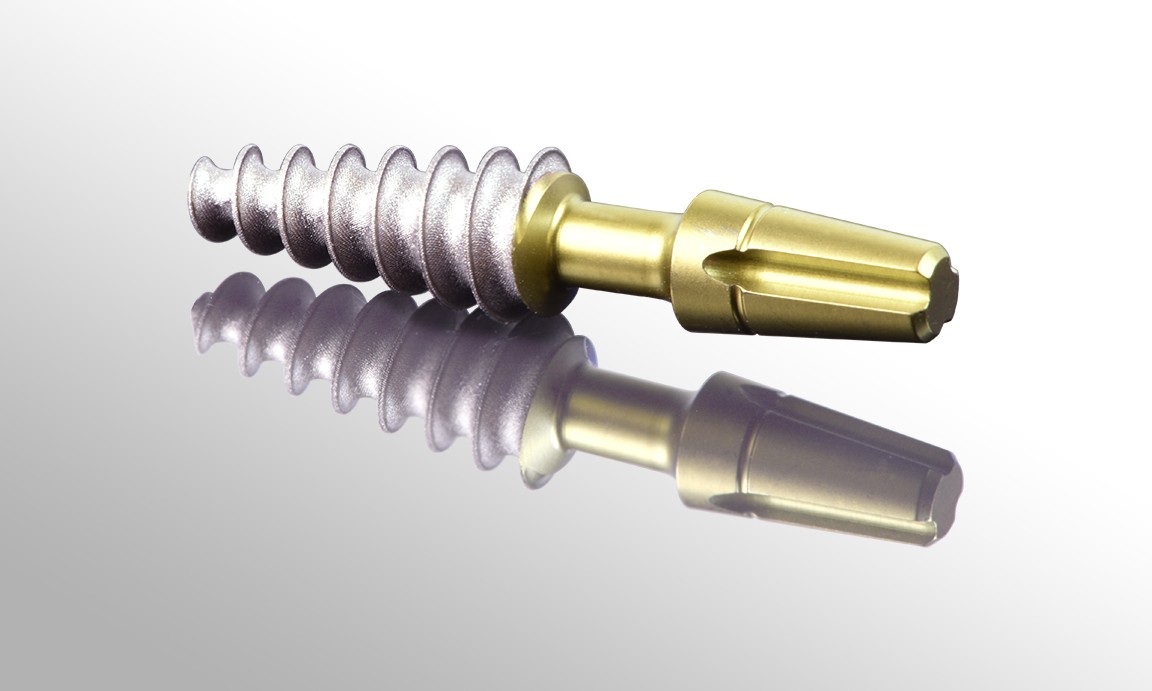
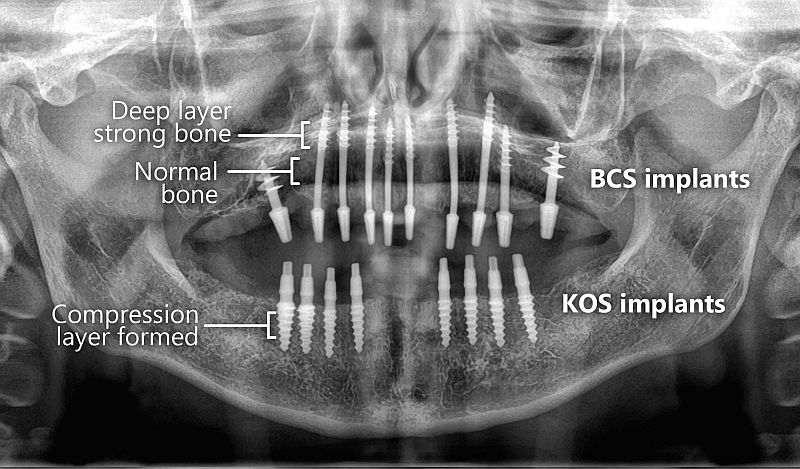
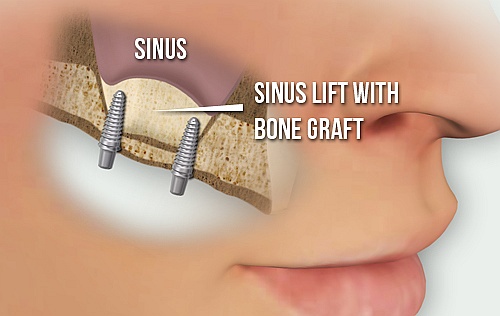 Sinus lift and bone graft with conventional implants
Sinus lift and bone graft with conventional implants


